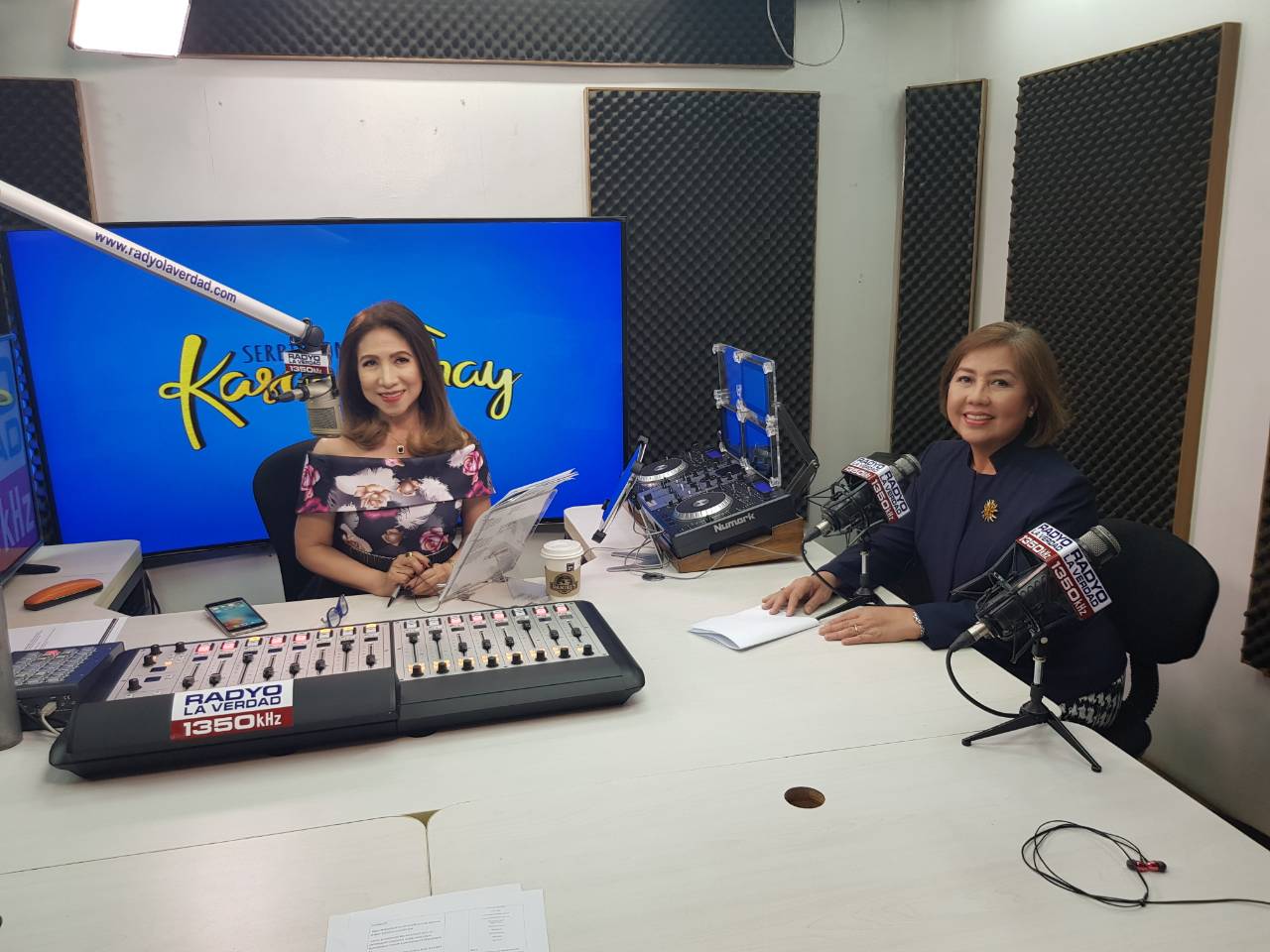Copyright: What is it and how does it work?
16 March 2018

From the importance to the benefits of copyright, Director General Josephine R. Santiago, LL.M. discussed the role of the intellectual property rights, specifically copyright, in protecting the literary and creative works of Filipinos, during a live interview on UNTV's ‘Serbisyong Kasangbahay' on March 15.
According to Santiago, copyright is a set of rights that gives protection to the author of an original work in relation to that work.
“Original work” refers to every production in the literary, scientific and artistic domain, which includes books and other writings, musical works, films, paintings and other works, and computer programs.
"The moment na gumawa ka ng literary or artistic work, 'yan ay protektado na ng copyright; hindi na kailangan mag-register. Maaaring i-deposit ang work sa National Library o sa IPOPHL upang makakuha ng certificate na patunay siya ang gumawa nito, pero hindi ito kinakailangan upang ma-protektahan,” Santiago said.
(Works are already protected by copyright from the moment of creation without need of registration. However, you may deposit your work with the National Library or the IPOPHL to get a certificate, as proof that you are the original creator, but again, this is not a requirement for copyright protection.)
"Bilang orihinal na creator, hindi maaaring i-reproduce ng ibang tao ang iyong likha nang walang permiso," Santiago added.
(Since you are the creator of original works, other people may not reproduce your work without your permission) Original creators, are also entitled to 'royalty' or 'license fees' from people who use their works.
Santiago said that claiming "no copyright infringement intended" produces no legal effect. Intent to commit infringement is immaterial in cases of infringement of intellectual property rights.
As such, people who repost or reproduce the content both online and offline without the author's permission could be held liable for infringement. If convicted for the first time, an infringer of copyright may be punished by imprisonment of at least one to three years plus a fine ranging from P50,000 to P150,000. More frequent convictions of copyright infringement will subject the infringer to higher penalties and longer imprisonment terms.
In order to avoid being involved in infringement cases, Santiago urged the public to always ask for permission from the copyright owner .
Watch the full interview here



